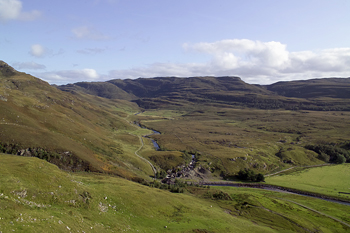Landowners using banned poisons will lose subsidies

The announcement came after the European Commission controversially decided last November to sever the link between money paid to landowners under the Common Agricultural Policy (CAP) and the laws to protect wildlife from poisoning and trapping under the terms of Statutory Management Requirements, which are part of cross-compliance.
The decision was taken by the commission in order to simplify the way in which the subsidy system operates.
Under the old rules, John Dodd, owner of Glenogil estate, in Angus, last year had his farming subsidy cut by a record £107,000 by the Scottish Executive because of suspicions that pesticides discovered on his land were used against birds of prey.
On 1 January, management requirements linking subsidy payments to Article 8 of the EU Birds Directive were removed.
However, Scotland?s environment minister, Mike Russell, announced last month his intention to use alternative legislation to impose similar subsidy penalties on landowners.
Previously, landowners had to comply with Article 8, which bans the use of ?non-selective methods of capture or killing of birds? in order to be eligible for EU farming funds.
The removal of Article 8 from cross-compliance means that unless a poisoned carcass is found, technically there is no longer a breach of the regulations.
Mike Russell stated, however, that he would use other legal powers to continue targeting illegal use of pesticides. He told the Holyrood Parliament: ?Wildlife crime is a crime like any other. It will be investigated like any other and those taking part will be punished as they would with any other crime. Cross-compliance is one of the most significant tools in our armoury for dealing with wildlife crime.?
The Scottish Government?s new approach focuses on use of banned pesticides, such as carbofuran which is commonly used in wildlife poisoning cases. The use of a banned pesticide still constitutes a breach of cross-compliance rules, meaning a subsidy penalty could be imposed on landowners involved. It is possible, therefore, that if poisoned baits are found laced with carbofuran but no poisoned carcases are found, this would still constitute a breach of cross-compliance.
A spokesman for the Scottish Rural Property and Business Association (SRPBA) told Shooting Times: ?In this context, cross-compliance measures are to deal with matters within the control of a farm business. Consequently, we remain concerned about the level of proof required to impose such a penalty and that it could be applied to someone who has no part in or knowledge of the offence without recourse to the courts. It is effective application of the law that must discourage illegal activity and penalise those who commit wildlife crimes of all types and the SRPBA is committed to working with the Scottish Government and appropriate law enforcement agencies to stamp out all forms of wildlife crime across Scotland.?








